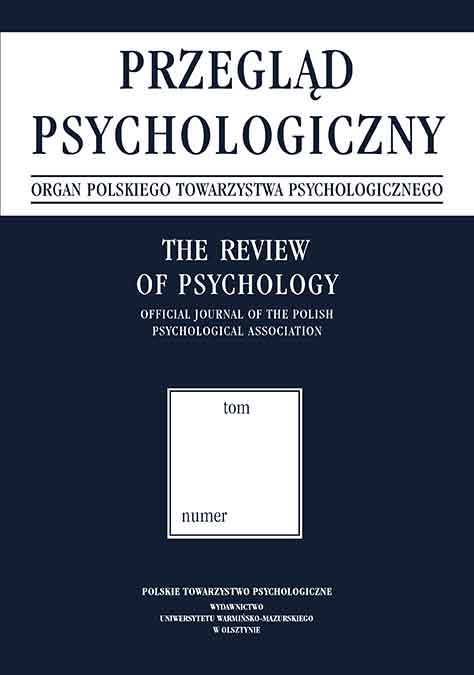Sprytne, jeśli uczciwe. Ocena legalnych i nielegalnych zachowań podatkowych pracowników i przedsiębiorców
Smart means honest. Evaluation of legal and illegal tax behaviors of employees and entrepreneurs
Author(s): Sabina KołodziejSubject(s): Social psychology and group interaction
Published by: Wydawnictwo Uniwersytetu Warmińsko-Mazurskiego w Olsztynie
Keywords: tax avoidance; tax evasion; self-interest; egocentric distortion of judgement;
Summary/Abstract: Objective: The tendency to minimize taxes paid is interpreted as self-interest concern, which is one of the basic motives for action and social perception. However, tax evasion is associated with moral judgement distortion in order to maintain a positive self-image. The aim of the study was to analyze social evaluations of tax avoidance and evasion. Due to the differences in the scope of legal and illegal methods of reducing the amount of taxes paid available to employees and entrepreneurs, the study took into account the perspective of the person making the given evaluation. Method: The study was conducted in the CAWI methodology, on a sample of Polish taxpayers (N=223). A questionnaire describing four tax situations differing in the legality of a given action and the characteristics of taxpayer with semantic differential scale: smart - not smart was used. Results: Legal tax reductions were evaluated as more smart than illegal. The evaluation of tax evasion was related to the characteristics of the described taxpayer, while tax avoidance depended also on the respondent's form of employment. A more positive evaluation of the tax decision made by respondent's professional group representative concerned only the tax avoidance made by entrepreneurs. Conclusion: Legal and illegal methods of lowering taxes are distinguished socially, and a more positive evaluation of these activities depends on their legality. The results of the study do not allow to formulate a statement about the occurrence of egocentric distortion of evaluations in relation to the analyzed tax behaviors of employees and entrepreneurs.
Journal: Przegląd Psychologiczny
- Issue Year: 67/2024
- Issue No: 2
- Page Range: 27-42
- Page Count: 16
- Language: Polish

